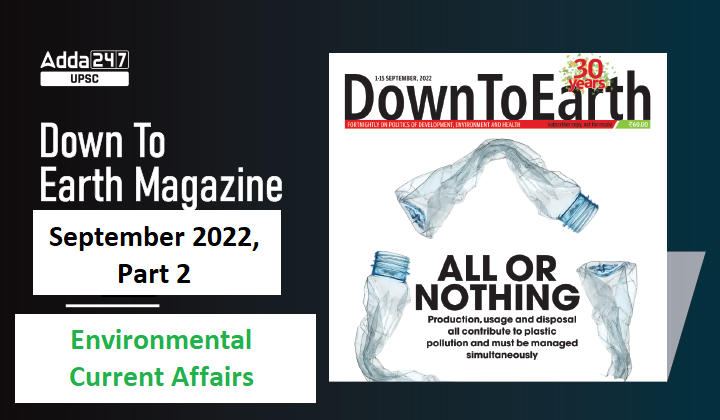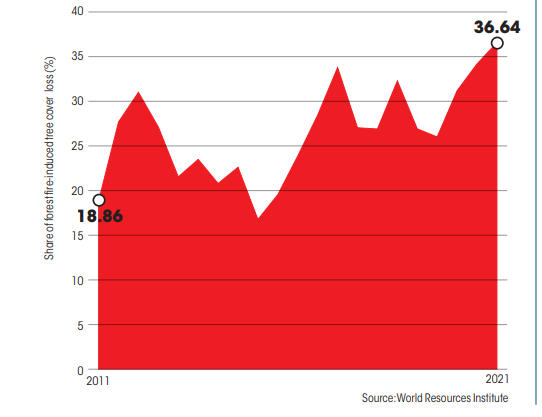Table of Contents
Melting Arctic
Why in news?
- Greenland’s ice loss has accounted for 1-millimetre rise in the global sea levels each year for the past decade.
Latest Estimates
- The UN Intergovernmental Panel on Climate Change has predicted that the melting of the country’s ice sheet will contribute 10-15 cm to the rise in sea levels by 2100.
- But a recent study by researchers in Europe and the US, published in the journal Nature Climate Change, states that Greenland’s ice sheet will irreversibly retreat by at least 59,000 sq km and raise the global sea levels by 27.4 cm.
- New estimates are different than earlier because they include increased rain and greater absorption of sunlight, intrusion of warm ocean currents and fractures in the ice sheet.
Can we prevent this ice loss?
The researchers say that ice loss and rise in sea levels are inevitable. But taking climate action now will reduce the impact to some extent.
Forest Fires
Why in news?
- Forest fires burn nearly twice as much tree cover today as they did 20 years ago. Since 2001, forest fires have accounted for more than a quarter of all tree cover loss globally, burning 9.3 million hectares in 2021 alone.
Frequent Forest Fires and loss of global tree cover
- Extreme heat waves are already five times more likely today than they were 150 years ago and are expected to become even more frequent as the planet continues to warm.
- Wildfires were responsible for over a third of global tree cover loss in 2021, while they were accountable for around a fifth of the loss in 2001.
- The large majority roughly 70 per cent of all fire-related tree cover loss over the past two decades occurred in boreal regions (northern high-altitude regions like Estonia, Latvia, and Lithuania, and most of Sweden and Finland).
- 2021 was one of the worst years for forest fires since the turn of the century, causing an alarming 9.3 million hectares of tree cover loss globally.
What is the reason?
- Climate change is likely a major driver in increasing fire activity as warmer temperatures dry out the landscape and help create the perfect environment for larger, more frequent forest fires.
- This in turn leads to higher emissions from forest fires, further exacerbating climate change and contributing to more fires as part of a fire-climate feedback loop.
- Agricultural expansion and forest degradation have increased fires in tropical forests.




 TSPSC Group 1 Question Paper 2024, Downl...
TSPSC Group 1 Question Paper 2024, Downl...
 TSPSC Group 1 Answer key 2024 Out, Downl...
TSPSC Group 1 Answer key 2024 Out, Downl...
 UPSC Prelims 2024 Question Paper, Downlo...
UPSC Prelims 2024 Question Paper, Downlo...




